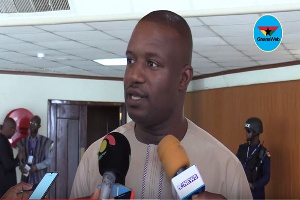The minority caucus of parliament has alleged that the recent increments in electricity and water tariffs are part of efforts by the government to meet the conditionalities of the International Monetary Fund (IMF) for the $3 billion bailout it is seeking.
The Public Utilities Regulatory Commission (PURC) announced the increase in tariffs for utility services on Monday, January 16, which is to take effect from February 1, 2023.
According to the PURC, electricity tariffs will be increased by 29.96 percent while water tariffs will be increased by 8.3 percent.
Reacting to this in a statement issued by John Jinapor, the Ranking Member of Parliament’s Mines and Energy Committee, the minority accused the government of using unapproved means to increase the tariffs so that it will be able to meet the IMF’s conditionalities in the energy sector.
It said that the increment announced implies that utility tariffs have been increased by over 70 percent which shows how insensitive the government is to the plight of Ghanaians who are already going through a lot of hardships.
“The Minority in Parliament has noted with concern, the significant price hikes in electricity tariffs by the Public Utilities Regulatory Commission taking effect from 1st February 2023. This tariff adjustment leads to almost 77% increment in less than 6 months.
“By this statement, the Minority demands of the PURC to refrain from such unorthodox methods, which, by all intends and purposes, is a back door approach to meet the IMF conditionalities in the energy sector,” parts of the statement by the minority read.
The minority also accused the PURC of skewing the generation mix of electricity production in favour of thermal power as against hydro to create unfair price hikes.
Read the full statement by the minority below:
20/01/2023
For Immediate Release
MINORITY STATEMENT ON THE RECENT UTILITY TARRIF HIKES.
The Minority in Parliament has noted with concern, the significant price hikes in electricity tariffs by the Public Utilities Regulatory Commission taking effect from 1st February 2023.
This tarrif adjustment leads to almost 77% increment in less than 6 months.
A critical look at the tarrif structure as announced reveals that all residential customers who consume between 0-300 kWh have witnessed a jump from GHp/kWh 65.4161 to GHp/kWh115.72, representing an almost 77% increase in price since September 2022.
It should be noted that the bulk of residential customers falls between 0-300 kWh band and will therefore be adversely affected by the almost 77% price increment.
We also note that the increment is on account of the worsening Ghanaian currency (Ghana Cedi) against other major currencies. Recently, the Cedi has witnessed a free fall with the local currency rated as the second worst performing currencies in the world.
Already, inflation is galloping and getting worse by the day, with the current rate estimated at over 50%, and therefore, this increment will only exacerbate the current high cost of living. This will automatically worsen the plight of the already impoverished Ghanaian.
We have also noted the attempt by the PURC to skew the generation mix in favour of thermal power as against hydro to create an unfair price hike to the detriment of consumers.
It must be stated that the PURC is not the technical regulator hence, cannot arbitrarily skew the thermal/hydro mix contrary to the projections by the Energy Commission, which is the technical regulator of Ghana’s energy sector.
From the available data, all the 3 hydro dams have witnessed very high elevations at the beginning of 2023 and are therefore in better positions to produce more hydro electricity compared to the previous years. We are confident of hydro generating not less than 35% based on the Energy Commission’s projections. We therefore reject the 26% Hydro mix used in computing the recent tarrif adjustments.
By this statement, the Minority demands of the PURC to refrain from such unorthodox methods, which, by all intends and purposes, is a back door approach to meet the IMF conditionalities in the energy sector.
Hon John Jinapor
Ranking Member, Mines and Energy Committee
Source: ghanaweb.com




